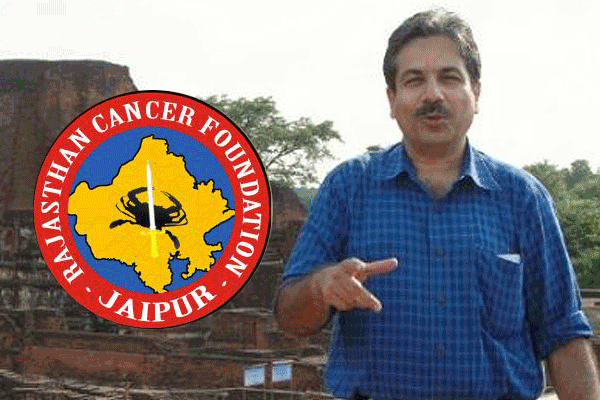India’s tobacco problem is a very complex one. Dr Rakesh Gupta, President, Rajasthan Cancer Foundation, highlights various initiatives for creating awareness and challenges posed by the tobacco industry, in a conversation with Mansha Gagneja
What are the various campaigns organised to create awareness ?
The Cigarettes and Other Tobacco Products Act (COTPA ) came into force in 2003 but the government realised that there was a lack of human resource. Due to which they started recruiting state consultants around five years ago. Primarily, people recruited at district level work for the enforcement of COTPA .The Rajasthan government is working on National Tobacco Control Programme (NTCP), which is currently ongoing in 17 districts with a vision to slowly extend to other parts of the state. Under this programme four people are appointed namely-district tobacco control consultant, counsellor, social worker and a data manager. Training programmes are going on in various districts for capacity building. These doctors, once trained, will create awareness among tobacco users, about treatment options available and to empower subordinate staff. The government is now funding every state to invest in information, education and communication (IEC) under NTCP. Rajasthan also levies the highest tax of 65 per cent on all tobacco products.
Is the government supporting these drives or are there any hurdles to be overcome to accelerate these drives?
The COTPA levied charges on various tobacco-related activities. For instance smoking in public places and public transports is prohibited. In 2008, an amendment was made which restricts smoking at work places to only the smoking zone. It also provided specifications for build up of the area. There have been many achievements under the COTPA, for example, India has the second largest pictorial warnings put up on tobacco products but the frequency of these warnings need to be improved. Though it has managed to improve on the warning, COTPA still should have been amended long back. In countries such as Thailand and Australia, a spectrum of warnings are levied on various age groups which we can learn to adopt. Warnings need to be rotational along with the wider spectrum so as to have more effectiveness for the drives. The foremost loophole in the act is the failure for implementation. Even though there is a penalty charged for consumption of tobacco in public places, it is merely up to Rs 200 for violation. This penalty is minimal considering that the valuation of rupee has gone up now.
There is a strong lobby of tobacco giants. What can be done to deal with the resistance posed?
There is a huge network among the tobacco players that need to be tackled. The government is apprehensive to take strict actions against the players because of the power held by them. Even if the government files a case against these tobacco players, chances are that these giants will win the case which reinforces their stand. There is a need for measures to be taken to handle these activities. A few measures have been taken up internationally for instance, Bloomberg & Bill Gates launched the Anti-Tobacco Trade Litigation Fund, which is a joint effort to combat the tobacco industry’s use of international trade agreements to threaten and prevent countries from passing strong tobacco-control laws. India has also signed a treaty with WHO which states that Government of India will not interact with tobacco industry. If at all it is necessary, it will interact in a transparent manner. This has to be efficiently implemented to reduce the strong hold of tobacco players.
- Advertisement -



Comments are closed.